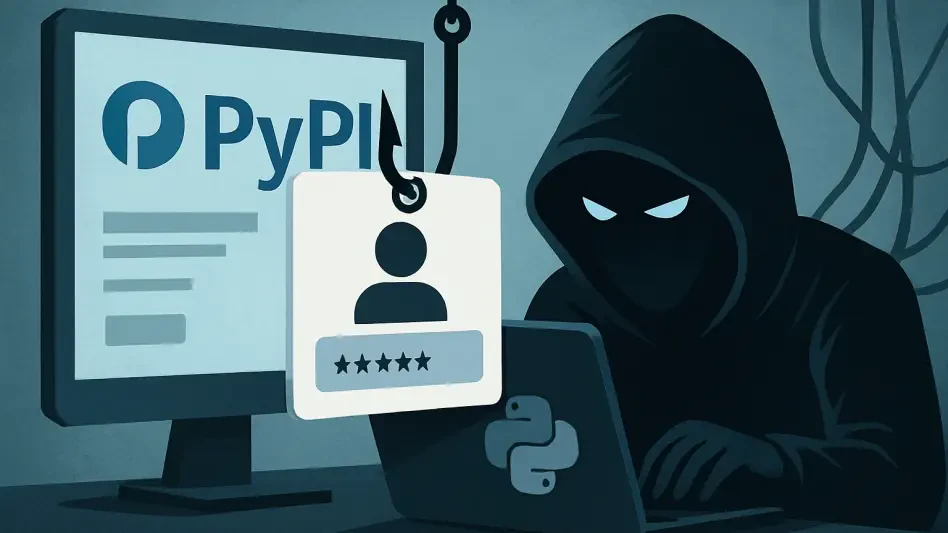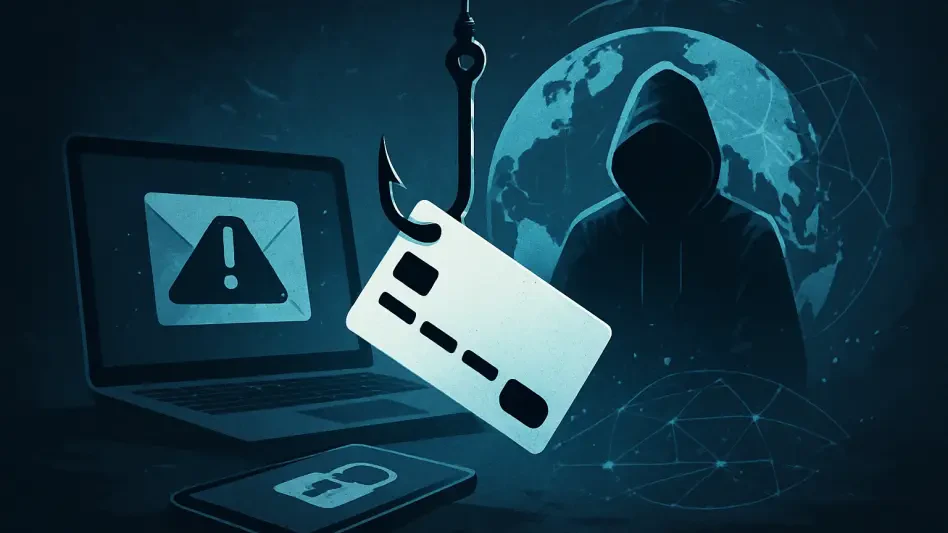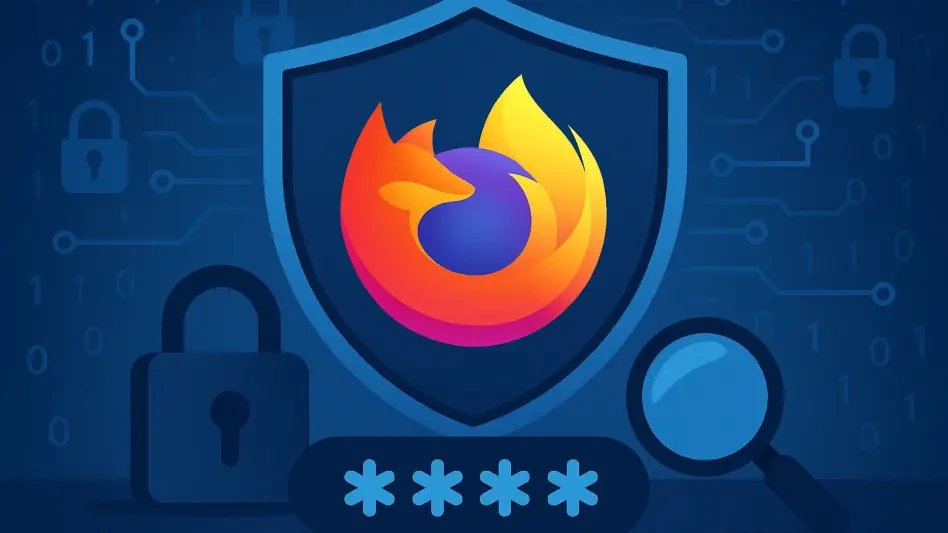In the rapidly evolving world of technology, cybersecurity has become a critical concern. As more devices connect to the Internet, the potential for cyberattacks increases exponentially. Surprisingly, most cybersecurity incidents are not due to technological failures but rather human errors, which often go unnoticed and unaddressed. This article delves into the impact of human error on cybersecurity and the importance of incorporating these considerations into organizational guidelines and procedures.
The Role of Human Error in Cybersecurity
Understanding Human Mistakes
Human errors are a significant factor in cybersecurity breaches, playing a more substantial role than most people realize. Research indicates that over 80% of cyberattacks result from human mistakes rather than sophisticated technical vulnerabilities. These errors can take various forms, such as employees ignoring password requirements, creating weak passwords, or falling victim to deceptively crafted phishing emails. Understanding how people think and behave is crucial for developing effective cybersecurity strategies, as these human vulnerabilities often serve as the gateway for cybercriminals to infiltrate systems.
The diversity of human errors underscores the need for robust training programs and cybersecurity awareness campaigns within organizations. For instance, employees might understand the need for strong passwords but choose convenience over security, leading to the creation of easily guessable passwords. Similarly, spear-phishing attacks have become increasingly sophisticated, making it challenging for even the most vigilant employees to identify fraudulent messages. Therefore, a comprehensive understanding of human psychology and behavior is imperative for creating and implementing cybersecurity protocols that address these vulnerabilities head-on.
Case Study: The HBGary Breach
A notable example of the detrimental effects of human error in cybersecurity is the 2011 attack on HBGary by the hacker group Anonymous. In this high-profile case, poor password management by top executives played a significant role in the breach, exposing critical vulnerabilities within the company’s security infrastructure. The aftermath of the attack was severe, with devastating consequences for the company that extended far beyond the immediate security implications. The breach not only compromised sensitive information but also led to the eventual downfall of HBGary’s subsidiary, HBGary Federal, illustrating the far-reaching impacts of seemingly minor human errors.
This case serves as a cautionary tale for organizations, highlighting the importance of addressing human factors in cybersecurity to prevent similar incidents from occurring. The HBGary breach reveals that cybersecurity is not solely the domain of IT departments; it requires a concerted effort across all levels of an organization, especially among top executives who are often prime targets for social engineering attacks. By implementing stringent password management policies and fostering a culture of cybersecurity awareness, organizations can mitigate the risk of such breaches and enhance their overall security posture.
Addressing Human Factors in Cybersecurity
The NICE Framework
The National Institute of Standards and Technology (NIST) offers the NICE Workforce Framework for Cybersecurity, a valuable resource for organizations striving to enhance their cybersecurity defenses. This comprehensive framework helps educate and train employees to prevent cyber incidents by incorporating best practices, guidelines, and roles specifically designed to address human factors in cybersecurity. Within the NICE Framework, there is a defined role for managers, known as the Program Management Work Role, which provides actionable guidance on enhancing cybersecurity within organizations by addressing human errors at a systemic level.
The NICE Framework is an essential tool for organizations aiming to reduce human error-related vulnerabilities. By emphasizing the importance of continuous education and hands-on training, it empowers employees at all levels to recognize potential threats and respond effectively. The framework also underscores the importance of fostering a security-conscious culture within organizations, where cybersecurity is viewed as a shared responsibility. By adopting the NICE Framework, businesses can create a resilient workforce capable of mitigating human errors and enhancing their overall cybersecurity posture.
Educating Supervisors
Supervisors play a crucial role in minimizing human errors in cybersecurity by serving as the first line of defense in enforcing security policies and protocols. By incorporating research on human factors into the guidance for the Program Management Work Role, organizations can better educate their supervisors, equipping them with the necessary knowledge and skills to identify and address potential vulnerabilities. This approach can help reduce avoidable errors, fostering a more robust cybersecurity workforce that is well-prepared to tackle the ever-evolving landscape of cyber threats.
Effective supervisor education involves not only technical training but also a deep understanding of human behavior and psychology. Supervisors must be equipped to recognize the signs of phishing attempts, social engineering tactics, and other forms of cyber manipulation that exploit human weaknesses. By fostering a culture of continuous learning and vigilance, organizations can ensure that their supervisors are proactive in identifying and mitigating potential threats. Additionally, regular assessments and refresher courses can keep supervisors abreast of the latest cybersecurity trends and best practices, further strengthening the organization’s overall security framework.
Insights from a Cybersecurity Internship
Gaining Professional Experience
Miles Walker, a cybersecurity student and summer intern at NIST, shares his experiences and insights from his internship, which has provided him with invaluable professional experience and research skills. His journey through the internship has been enriched by hands-on projects, real-world problem-solving, and exposure to various facets of cybersecurity. One of the highlights of his internship was attending NICE Director Rodney Petersen’s testimony before the House Homeland Security Committee. This experience offered Walker a unique glimpse into the inner workings of government departments and the critical role cybersecurity plays at the national level.
Walker’s internship experience has been instrumental in shaping his understanding of the cybersecurity landscape and preparing him for a future career in the field. His exposure to real-world challenges and cutting-edge research has not only honed his technical skills but also instilled a deep appreciation for the complexities and nuances of cybersecurity. Through his work on various projects, Walker has gained insights into the importance of a multi-faceted approach to cybersecurity, where technology, human factors, and organizational practices intersect to create a resilient defense against cyber threats.
Developing Life Skills
Living independently during his internship has allowed Walker to develop important life skills, such as budgeting and time management, which are essential for both personal and professional growth. Balancing the demands of a rigorous internship with day-to-day responsibilities has taught him valuable lessons in prioritizing tasks, managing time efficiently, and making informed decisions—skills that are transferable to any career path. These experiences have been enriching and educational, providing Walker with a well-rounded perspective on the challenges and rewards of a career in cybersecurity.
The independence gained during Walker’s internship has also contributed to his personal development, instilling a sense of responsibility, self-discipline, and adaptability. These life skills are crucial for navigating the dynamic and fast-paced world of cybersecurity, where professionals must be able to think on their feet and respond swiftly to emerging threats. By embracing the challenges and opportunities of his internship, Walker has laid a solid foundation for his future career, equipped with both the technical expertise and the personal qualities needed to thrive in the cybersecurity field.
The Path to a Cybersecurity Career
Early Interest in Technology
Growing up surrounded by technology, Walker’s interest in the field began at a young age, and he quickly developed a passion for understanding how things work. This early fascination with technology led him to pursue a technology-related field in college, where he eventually selected cybersecurity over computer science due to his lack of interest in the math-heavy aspects of the latter. Currently studying cybersecurity at Hampton University, a historically Black University in Virginia, Walker is committed to making a difference in the field by addressing the human factors that contribute to cyber threats.
Walker’s academic journey in cybersecurity has been marked by a strong desire to understand the intricacies of cyber threats and develop effective strategies to combat them. His choice to attend Hampton University, known for its commitment to fostering diversity and excellence, has provided him with a supportive and challenging environment to hone his skills. Through coursework, hands-on projects, and collaborative research opportunities, Walker has gained a comprehensive understanding of the technical and human aspects of cybersecurity, preparing him for a promising future in the field.
Future Plans
After completing his undergraduate degree, Walker plans to pursue a master’s or law degree, keeping his career options open but with a focus on the technology sector. His experiences and education have prepared him for a versatile career path, with opportunities ranging from cybersecurity analyst to legal expert specializing in cyber law. Regardless of the specific path he chooses, Walker is determined to make a meaningful impact in the cybersecurity field by leveraging his knowledge and skills to address the human factors that contribute to cyber threats.
Walker’s future aspirations reflect his commitment to continuous learning and professional development. By pursuing advanced degrees, he aims to deepen his expertise and broaden his understanding of the intersection between technology, law, and human behavior. His diverse experiences and educational background have equipped him with a unique perspective on cybersecurity, enabling him to approach challenges from multiple angles. As he continues his journey, Walker remains focused on contributing to the cybersecurity industry, driven by a passion for making the digital world a safer place for all.
Advice for Future Interns
Embracing the Research Journey
Walker advises future interns to keep an open mind and be willing to explore various topics within the field of cybersecurity. He emphasizes that the path of research is never a straight line and encourages students not to feel pressured to know everything about their topic at the start. Instead, he highlights the importance of embracing the journey of learning and discovery, as it leads to valuable insights and growth. By remaining curious and adaptable, interns can uncover new perspectives and develop innovative solutions to complex cybersecurity challenges.
Walker’s advice reflects the dynamic and evolving nature of cybersecurity research, where new threats and technologies constantly emerge. He encourages future interns to approach their projects with curiosity and a willingness to delve into uncharted territories. This mindset not only enhances the research experience but also cultivates critical thinking and problem-solving skills that are essential for a successful career in cybersecurity. By embracing the research journey, interns can gain a deeper understanding of the field and contribute to the development of cutting-edge solutions that address real-world cyber threats.
The Importance of Real-World Experience
Walker underscores the value of real-world experience in building a successful cybersecurity career. Internships provide an invaluable opportunity for students to apply their academic knowledge to practical challenges, gaining insights that cannot be obtained in a classroom setting. Walker believes that hands-on experience is crucial for developing a comprehensive understanding of cybersecurity, as it exposes interns to the complexities and nuances of real-world cyber threats.
In today’s fast-paced tech landscape, cybersecurity has become a pressing issue. As the number of devices connected to the Internet skyrockets, the chances of cyberattacks grow significantly. Interestingly, many cybersecurity breaches aren’t caused by flaws in technology but by human mistakes, which often slip by unrecognized and uncorrected. Addressing human error in cybersecurity is crucial for the protection of sensitive data and the integrity of systems. This article explores how human errors impact cybersecurity and emphasizes the importance of factoring these elements into company policies and procedures. Instituting robust training programs can mitigate risks by educating employees about common pitfalls, such as phishing scams and weak passwords, which leave organizations vulnerable. By prioritizing awareness and continuous education, businesses can build a stronger defense against cyber threats. In an age where cyber risks loom large, recognizing the role of human error and proactively managing it are vital steps toward ensuring cybersecurity resilience.





